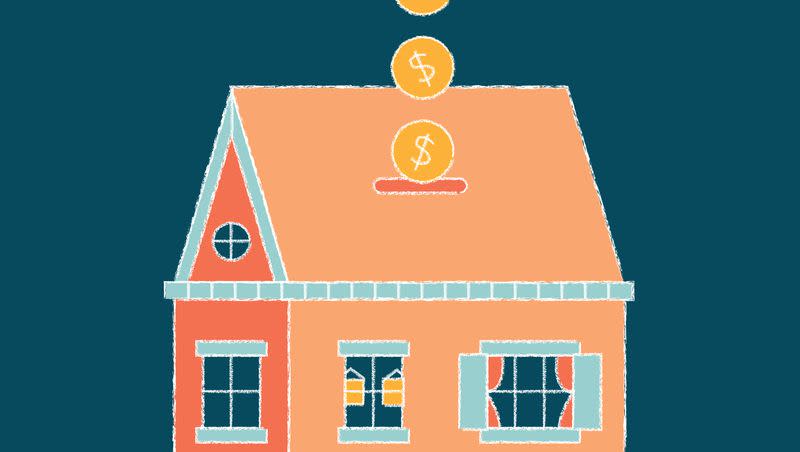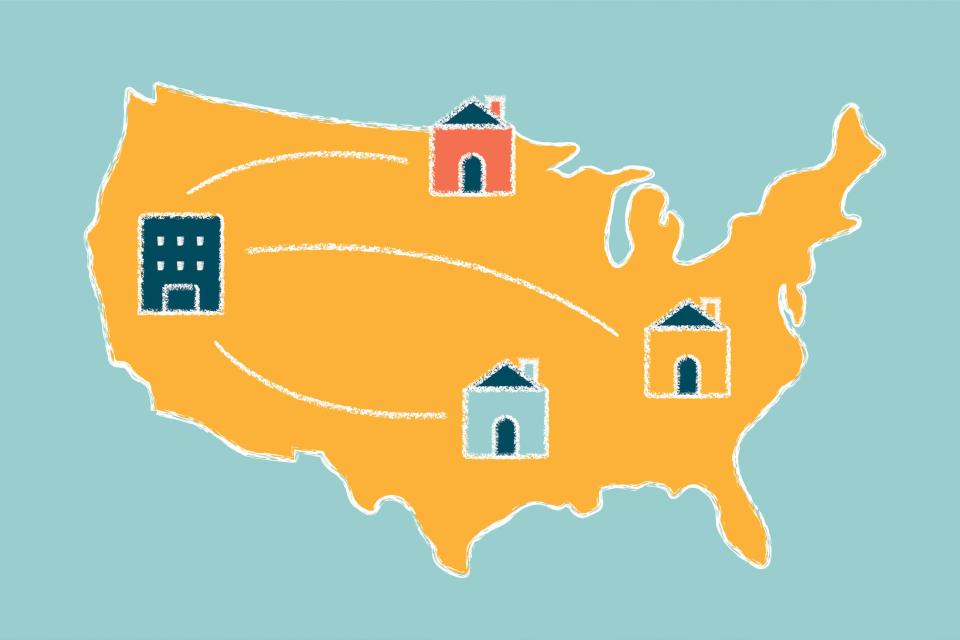Enter the forever renters

- Oops!Something went wrong.Please try again later.
Owning a home has been central to the “American dream” ever since historian James Truslow Adams coined that phrase in 1931. But a convergence of seismic economic events and social upheaval in recent decades have changed young America’s relationship to this symbol of prosperity and lynchpin of family wealth.
Many millennials are entering prime home buying age, but they are increasingly opting out or simply giving up. Who are these forever renters and why aren’t they buying homes?
24.7% of millennials expect to rent perpetually. A 2022 study conducted by the Federal Reserve Bank of New York found that renters’ confidence in future homeownership is at an all-time low. Most respondents plan to continue renting, either because they prefer it or because they’re holding out hope that home prices will fall. From 2013 to 2022, the percentage of millennials expecting to rent for the rest of their lives nearly doubled from 13.3%.
The new American dream may not be built around settling down and finding a steady career job in an office or a factory. For today’s workforce, in an economy shaped by the flexibility of gig work and work-from-home opportunities, career advancement often comes by frequently changing jobs. Renting offers these upwardly mobile folks a new ideal to build their lives around: flexibility and freedom of choice.

Home prices have ballooned 30% in the last decade, raising a significant obstacle for new potential homeowners. This increase is driven by factors like low housing inventory, the cost of building materials and high inflation. Prices have rapidly outpaced family budgets, as median income rose just 11% in that same time frame.
Millennials are saddled with debt, which renters cite as a significant reason they can’t afford to buy a home. According to the Real Estate Witch Millennial Debt Survey completed in June 2022, three-fourths of millennials owe more than $100,000, most of it nonmortgage debt. They owe on things like credit cards, medical bills and student loans — including 30% of the $1.5 trillion in national student debt.
A new class of wealthier renters was spawned by the proliferation of remote work since the pandemic. Many white-collar workers in industries like tech or finance from expensive markets like New York City or the Bay Area can now live anywhere without losing their big city salaries. The flexibility of renting seems to appeal to folks who are free to move across the country and relocate whenever they please.
Renters are still missing out on one of the keys to generating family wealth. The average net worth of a homeowner in 2019: $255,000. A renter? $6,300.
“A lot of American renters want to buy a home, but they’re stuck renting because it’s simply too expensive to break into the housing market. That’s especially true since they’re often competing against investors or other deep-pocketed individual buyers” — Redfin chief economist Daryl Fairweather
The Airbnb Effect is subtly reshuffling the deck. Higher rental rates are motivating landlords and homesellers to move their properties from long-term renting and sale markets to the short-term rental market, reducing the housing supply for young families. A study found that a 1% increase in Airbnb listings leads to a 0.018% and 0.026% increase in rent and house prices, respectively. These are small amounts on the surface but, when combined with other factors, can add up quickly.
An algorithm is resetting the market. Rent-setting software from RealPage allows landlords, especially large ones with multiple properties, to accurately set rental rates as high as the market will bear. These algorithms squeeze rents harder than humans typically would, driving the value of rentals and properties higher. Per ProPublica, a neighborhood in Seattle saw properties using the software raise rent faster than others. This can contribute to rising prices across the tough housing market.
Enter the new corporate landlords. Wall Street investment firms have billions set aside to invest in buying and building homes, drawn by rising prices and profit potential from higher rents and short-term rentals. While Wall Street owns just 3% of single-family rental homes right now, MetLife Investment Management predicts that these investors will own 40% of the market by 2030.
This story appears in the April issue of Deseret Magazine. Learn more about how to subscribe.

